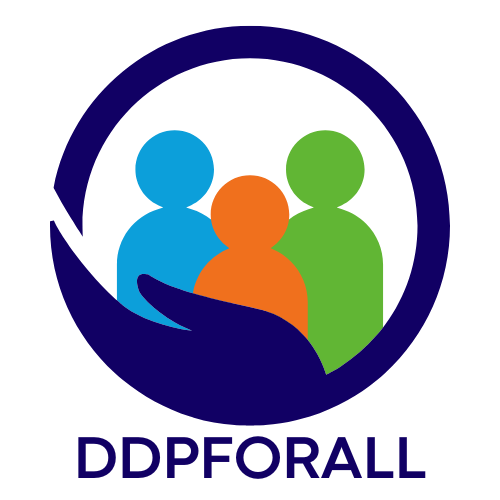Table of Contents
ToggleIn a world where emojis often replace words and attention spans rival that of a goldfish, mastering the art of reading and literacy has never been more crucial. A Master’s in Reading and Literacy isn’t just a fancy title; it’s a superpower that equips educators with the skills to transform reluctant readers into bookworms. Imagine the joy of igniting a passion for reading in students who once thought a novel was a type of sandwich!
This degree dives deep into the science of literacy, blending theory with practical strategies that make learning fun and effective. Whether it’s through innovative teaching methods or understanding the latest literacy trends, graduates emerge ready to tackle the challenges of today’s classrooms. So, if you’re ready to turn the page on your career and inspire the next generation of readers, this might just be the perfect chapter for you.
Overview of Masters in Reading and Literacy
The Master’s in Reading and Literacy focuses on advanced skills for promoting literacy among diverse learner populations. This degree equips educators with methodologies to enhance reading abilities in students and to foster a lifelong passion for literature. Coursework includes topics such as literacy theory, reading assessment, and instructional strategies.
Participants engage with research that informs effective teaching practices. They explore various literacy development stages and learn to tailor approaches to meet individual student needs. By completing this program, educators become well-versed in integrating technology and innovative resources to support reading initiatives.
Practical experience is a key component of the Master’s program. Field placements provide opportunities to implement new strategies in real classroom settings. Graduates gain confidence, allowing them to address unique challenges in literacy education.
Statistics indicate that students with strong reading skills perform better academically. Thus, pre-service teachers discover methods for assessing literacy levels and designing interventions. Additional learning about culturally responsive teaching enhances their understanding of diverse learning environments.
Pursuing this degree not only improves teaching effectiveness but also broadens career prospects. Many graduates move into roles such as literacy coaches, reading specialists, or education consultants. Professional development continues post-graduation, ensuring educators stay informed about the latest trends in literacy education.
Benefits of Earning a Masters in Reading and Literacy

Earning a Master’s in Reading and Literacy offers various advantages, enhancing both career prospects and job satisfaction.
Career Opportunities
Graduates of this program find numerous career paths in education. Positions include literacy coaches, reading specialists, and educational consultants. Many educators pursue roles in curriculum development or academic leadership, guiding others in effective literacy practices. Opportunities extend to working in public and private schools, universities, and non-profit organizations focused on education. Increased demand for skilled literacy professionals continues to rise, with schools actively seeking qualified candidates to address literacy challenges.
Salary Expectations
Salary potential varies based on location and experience. Educators with a Master’s in Reading and Literacy typically earn between $55,000 and $85,000 annually. Reading specialists in some regions report average salaries exceeding $70,000, reflecting their vital role in improving student literacy rates. In leadership or coaching roles, salaries may reach upward of $90,000, especially in metropolitan areas. Investing in this advanced degree leads to not only enhanced skills but also higher earning potential in the long term.
Program Curriculum and Structure
The Master’s in Reading and Literacy features a comprehensive curriculum designed to equip educators with essential skills. Coursework emphasizes both theory and practical application in literacy education.
Core Courses
Core courses focus on literacy theory, reading assessment, and instructional strategies. Educators explore the foundations of reading development and effective assessment methods. Participants engage with evidence-based practices that improve reading capabilities. Courses often include childhood literacy, teaching reading, and literacy research. These subjects enhance understanding of diverse learners’ needs and foster effective teaching methodologies. Graduate students also participate in hands-on projects that cultivate a real-world application of new strategies.
Elective Courses
Elective courses allow educators to specialize in areas that align with their interests. Options typically include topics like digital literacy and family literacy programs. These courses encourage exploration of advanced literacy topics such as literacy and social justice. Additionally, coursework may focus on multicultural literature and its role in the classroom. A mix of electives helps enhance knowledge and skills tailored to specific educational contexts. Electives provide valuable insights into contemporary issues in literacy, empowering educators to address challenges in their unique teaching environments.
Accreditation and Program Selection
Accreditation plays a crucial role in selecting a Master’s in Reading and Literacy program. Candidates should prioritize programs that meet accreditation standards set by the Council for the Accreditation of Educator Preparation (CAEP) or similar organizations. Accredited programs ensure rigor in curriculum and uphold quality in educator preparation.
Programs vary widely in structure and focus. Some institutions offer fully online options, while others provide hybrid or on-campus experiences. Candidates must evaluate their learning preferences and schedules when choosing a program.
Course offerings significantly influence students’ mastery of literacy skills. Core courses typically cover literacy theory, reading assessment, and instructional strategies. Elective courses may focus on areas like digital literacy or culturally responsive teaching, ensuring a well-rounded education that reflects current trends.
Field placements enhance theoretical knowledge through practical applications. Programs that include hands-on experience in diverse classroom settings prepare educators for real-world challenges. Additionally, candidates should inquire about faculty expertise and research opportunities, as these elements enrich the learning experience.
Program length and flexibility are also key considerations. Many Master’s programs are designed to be completed in one to two years, with part-time options available for working professionals. Candidates often benefit from the ability to balance coursework with personal or professional commitments.
Financial investment in education remains an important factor. Tuition rates differ across institutions, so prospective students should assess costs and explore funding opportunities, including scholarships or assistantships. Overall, thorough research into program accreditation, curriculum, practical experiences, and associated costs ensures the best selection for aspiring literacy educators.
Earning a Master’s in Reading and Literacy is a transformative journey for educators dedicated to enhancing literacy among diverse learners. This degree not only equips them with essential skills but also opens doors to various career opportunities. The blend of theory and practical application ensures that graduates are well-prepared to face the challenges of modern literacy education.
As they foster a love for reading and develop effective strategies for reluctant readers, they play a crucial role in shaping future generations. With the demand for skilled literacy professionals on the rise, pursuing this advanced degree can lead to greater job satisfaction and financial rewards. Investing in a Master’s in Reading and Literacy truly empowers educators to make a lasting impact in their classrooms and beyond.







